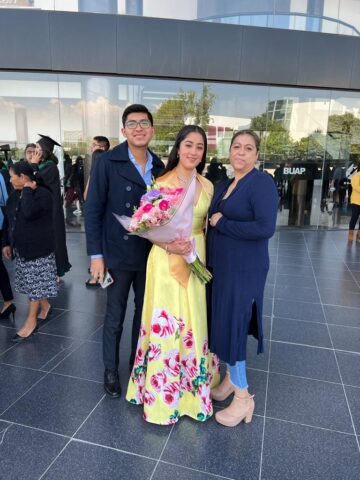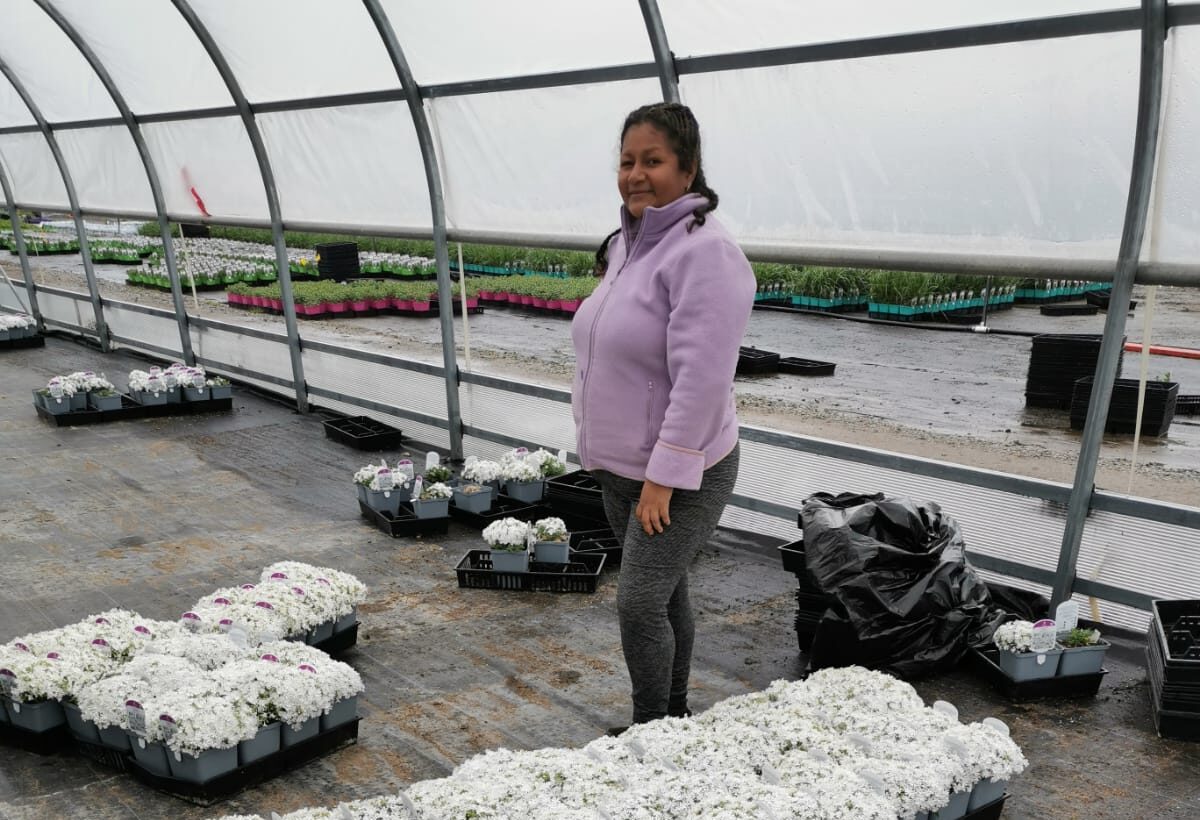Elena Rodriguez’s two children were two-years-old and nine months old when she left Mexico to come work as a seasonal farm worker in Ontario 22 years ago.

“My children knew they had a mother, but they didn’t know me,” Rodriguez told New Canadian Media, after finishing a 10-hour shift on the farm. “I only had four months to live with them before returning to Canada to work for eight-month seasons.” She has been working in Ontario farms for the better part of the last two decades, through Canada’s Seasonal Agricultural Worker Program (SAWP) partnership with Mexico.
For hundreds of migrant farmworkers like Rodriguez, Mother’s Day will be a lonely one, likely filled with work.
“Mother’s Day is like a normal working day for us because our children are in Mexico, and we can’t hug them,” Rodriguez said.
“We settle for a call or a text message.”
Her mother and sister took care of her children while she worked in Canada. Now, Rodriguez’s 24-year-old son is a public accountant and her 22-year-old daughter is about to graduate in international trade.
“Sometimes my children reproached me for not having been with them, but as they grew, they understood the sacrifice I made and took advantage of the university that I could afford,” said Rodriguez.
From January 2023 to date, 230 women farm workers, mostly mothers, have come to work in Ontario farms, according to the Mexican consulate in Toronto. They come for seasons of three to eight months and earn $15.83 per hour.
Essential work
Edith Morales will be spending this Mother’s Day working at a flower farm.
Also from Mexico, Morales has three children and has been working for 14 years in Saskatchewan and Ontario farms. Her hands have cultivated thousands of flowers for national consumption and export.
“Mother farm workers cannot celebrate this day because our children are far away,” Morales said after a 14-hour shift in a St. Catharines, ON flower farm. “We can only see them through a screen, but we cannot hug or kiss them.”
Ontario is the province with the most temporary farm workers in Canada. Women make up around 4 per cent of all workers. Last year, 269 women came to Ontario, which is 15 per cent more than the previous year.
“We hope the participation of women under the SAWP continues increasing, in line with gender policies in Mexico and Canada,” said Cynthia Moreno, consul of Protection Affairs and SAWP at the Mexican Consulate in Toronto.
According to Moreno, this large group of women comes year after year and is part of an essential workforce needed to ensure food security in Canada and the functioning of the Canadian agricultural sector.
“Many of them are single mothers and primary providers in their homes,” Moreno said. “Their personal sacrifice by migrating to Canadian farms for long periods of time, each year, allows to secure the base of the Canadian economy.”
For Morales, the sacrifice of missing birthdays and her children’s celebrations has been worth it because thanks to her work in Canada and the help of her mother, her children can afford a good education.
With great pride, she shared that her eldest 26-year-old daughter is a teacher with a postgraduate degree in Psychology, her 24-year-old son is a chemical engineer, and her youngest 18-year-old daughter is studying nursing.
‘I was punished’
A few years ago, when Amparo Huerta asked her boss for permission to go back to Mexico to help her daughter with her university application, the move was recorded by SAWP officials in Mexico as an abandonment of her contract.

“I was punished,” Huerta said. “The following year they did not send me to Canada, and then they have moved me to farms in Edmonton and Ontario.”
Huerta has been working eight seasons cultivating bell peppers in Niagara-on-the-Lake, and knows that this Mother’s Day she will receive images of flowers and messages from her daughter Betsiee Ariadna who is in her last year of a Mexican university.
For Huerta as well, it has been worth the sacrifice of not seeing her daughter for several months, since she has given her an education and a home.
“My daughter calls me ‘Mamita’ (mommy) and it excites me, fills me up, moves me,” Huerta said. “It gives me strength and courage to endure many positive things, many good vibes.”
Paths to Canada
In Mexico, Mother’s Day is May 10, but these workers cannot celebrate either Mexican or Canadian Mother’s day due to family separation.
Rodriguez, Morales and Huerta want SAWP to let them bring their children to visit, study or work in Canada.
“I would love for my children to come to visit me or at least be able to see them one week,” said Edith Morales.
For her part, Huerta stressed a need for a direct educational pathway. “I would like the SAWP to have a direct path that allows our children to come to study in Canada,” she said.
In the meantime, all three said they celebrate new technology that has helped make Mother’s Day less bitter. In years past, there was only one phone on the farm or they had to buy long-distance calling cards, but now the moms are grateful they can talk to their children on their cell phones and see them on video.

Isabel Inclan has worked as a journalist for more than 20 years, in both Mexico and Canada. She began working as a foreign correspondent in Canada in 1999 for Mexican media. She has been a New Canadian Media contributor since 2018. Her main areas of interest are politics, migration, women, community, and cultural issues. In 2015, Isabel was honoured as one of the “10 most influential Hispanic Canadians.” She is a graduate of Masters in Communication and Culture at TMU-York University. She is a member of CAJ and a member of the BEMC´s Advisory Committee.





